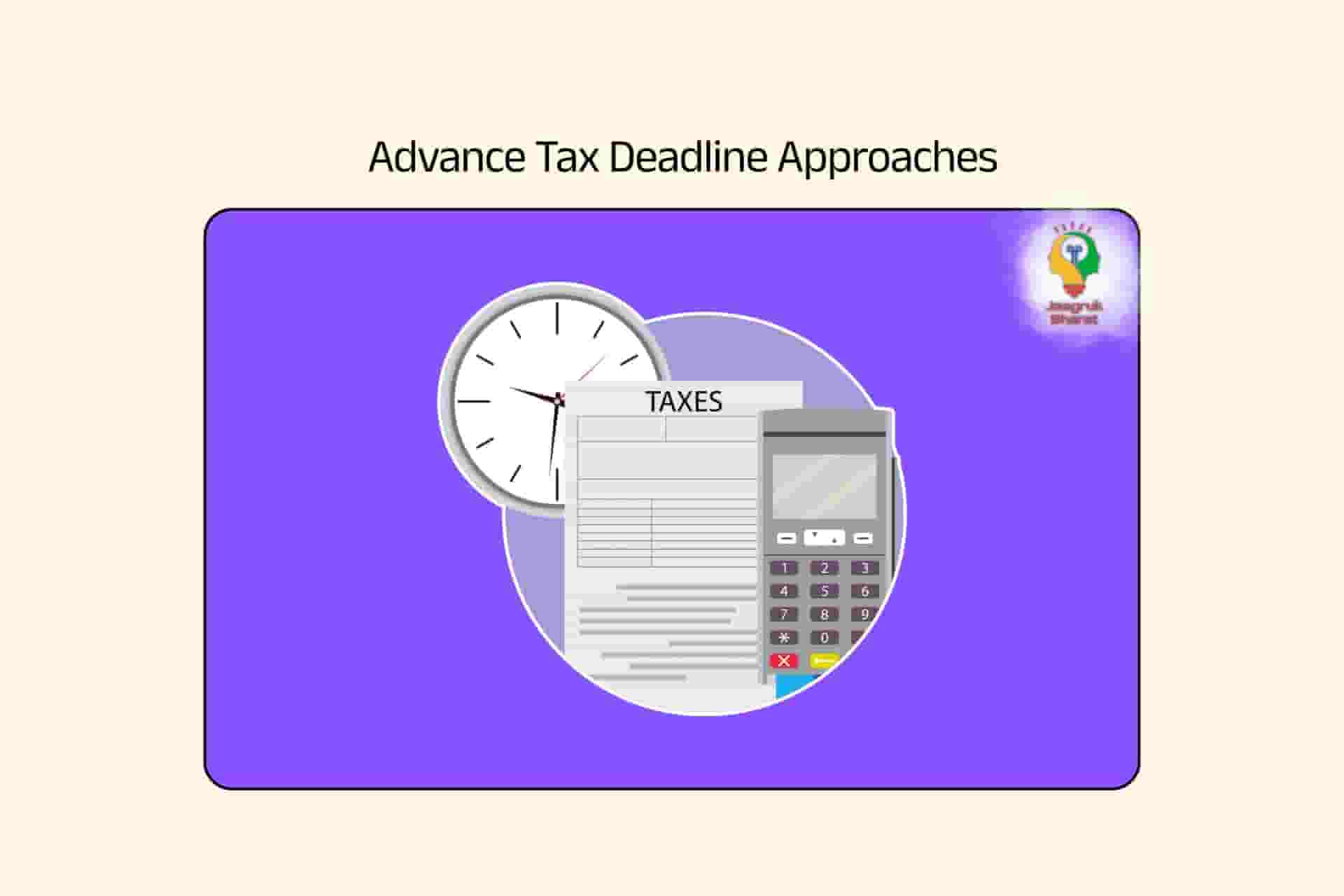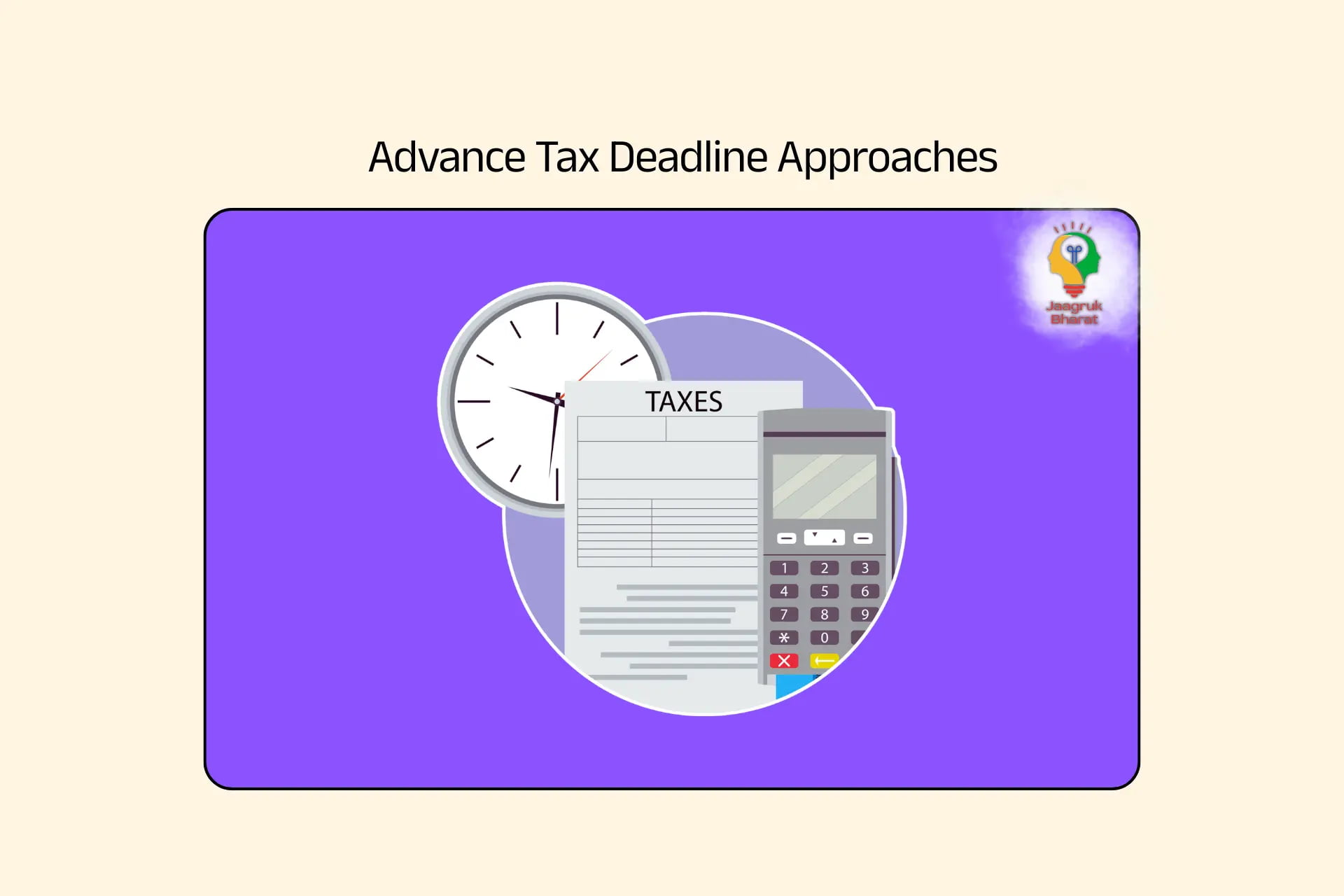Advance Tax Deadline Approaches: Are You Liable To Pay?
Updated: 21-09-2025 at 7:23 AM
1k


The final instalment advance tax payment deadline during the financial year is on March 15. People and commercial entities need to complete their tax payments if their liabilities are above ₹10,000 to prevent additional penalties. To make efficient payment planning as a taxpayer you must understand payment eligibility criteria together with liability assessment methods and non-compliance penalties. The article provides all essential information about advance tax payments before the delivery date.
What Is Advance Tax?
The system of Advance tax demands periodic payments for income taxes rather than waiting until the end of the year. Periodical payments according to estimated income help taxpayers fulfil their tax obligations under this system. The tax mandate applies to both employed workers and freelancers along with companies and elderly citizens who lack pension wealth.
Who Needs To Pay Advance Tax?
Tax payments for financial years exceeding ₹10,000 in estimated tax liability must be made using advanced tax methods. This includes:
-
Workers on a salary plan need to pay advance tax if they earn extra money from investments along with their wages.
-
Self-employed professionals like doctors, lawyers, and consultants.
-
Businesses with taxable income.
-
Senior citizens who lack business earnings do not need to pay advance tax.
Also Read: Significant Changes In TDS & TCS Rules Starting From April 1st
Advance Tax Payment Schedule
The advance tax payments are divided into four instalments based on the following schedule:
| Due Date | Tax Payable (% of Total Tax) |
|---|---|
| 15th June | 15% |
| 15th September | 45% |
| 15th December | 75% |
| 15th March | 100% |
How To Calculate Advance Tax?
Estimating and paying advance tax correctly can prevent penalties and ensure smooth financial planning. Understanding the right approach helps taxpayers avoid last-minute confusion and miscalculations.
-
Predict your whole financial year's income.
-
One must subtract any eligible exemptions as well as deductions that apply per the Income Tax Act.
-
The relevant income tax brackets should be used to determine the tax burden.
-
The available amount must include the already paid TDS (Tax Deducted at Source).
-
The remaining tax amount should be paid in advance by following the scheduled payments whenever the liability achieves ₹10,000 or more.
How To Pay Advance Tax?
Taxpayers can make their advance tax payments through the Income Tax Department’s e-filing portal and authorised banks which operate with Challan 280. Taxpayers have access to different payment methods which include net banking, UPI payments and debit card transactions.
Penalties For Non-Payment Or Late Payment
If you pay advance tax late or not at all you need to expect fines because of the Income Tax Act Sections 234B and 234C.
-
Taxpayers starting from April 1 must pay back 1% per month on all remaining taxes owed after 90%.
-
Delayed instalment payment adds 1% interest monthly according to Section 234C.
Also Read: 20 Easy Ways to Save Income Tax in 2025
Recent Updates And Changes In Advance Tax Regulations
The government has introduced several measures to simplify advance tax compliance, making it easier for taxpayers to file and pay online. Enhanced digital tools, AI-driven tax assistance, and seamless UPI payment integrations aim to improve accuracy and encourage timely payments.
-
The government made tax payments easier by simplifying online submission systems.
-
The Income Tax Department created AI tax support tools to help taxpayers calculate their taxes.
-
The digital payment system UPI lets users make fast and easy money transfers.
Tips To Avoid Advance Tax Issues
The following are some tips by which one can avoid paying advance tax issues:
-
Document all money made through freelance jobs investments and rental activities in separate records.
-
You can use tax estimation tools found both in governmental and private sources for correct tax analysis.
-
Timely instalment payments protect you from late penalties and create smaller year-end debt.
-
Contact a tax specialist for help when you cannot determine your tax responsibilities.
Conclusion
Before the March 15 deadline arrives taxpayers need to determine their tax bill and pay their advance instalments without delay. This practice helps us meet tax rules and keeps away added costs from penalties and late fees. You can check the rules on taxes by going to the Income Tax Department website or talking to an income tax professional.
For any queries, share your opinions, or any updates or information, visit Jaagruk Bharat's community page. Be a part of India’s biggest Jaagruk community.
0
0
1k
0
0
1k Views
0
No comments available





Our Company
Home
About
T&C
Privacy Policy
Eula
Disclaimer Policy
Code of Ethics
Contact Us
Careers
Cancellation & Refund Policy
Categories
Women
Insurance
Finance
Tax
Travel
Transport & Infrastructure
Food
Entertainment
Communication
Government ID Cards
E-commerce
Traffic guidelines
Miscellaneous
Housing and Sanitation
Sports
Startup
Environment and Safety
Education
Agriculture
Social cause
Employment
Disclaimer: Jaagruk Bharat is a private organization offering support for documentation and government scheme access. We are not affiliated with any government body. Official services are available on respective government portals. Our goal is to make processes easier and more accessible for citizens.
All Copyrights are reserved by Jaagruk Bharat